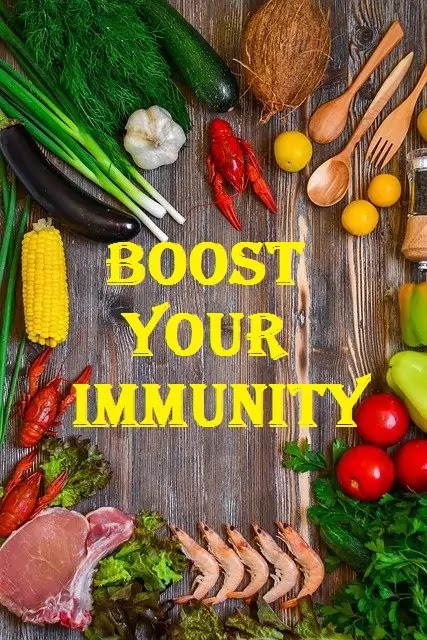Immune System:Innate and Adaptive
Our body has a powerful army that protects it from various types of threats. These threats can come in the form of mechanical injuries, the entry of germs, or the entry of other foreign particles like dust. This personal army is called the immune system.
Every day, we encounter a huge number of bacteria, viruses and other disease-causing organisms. However, we don't fall ill every other day. which is due to our immune system - an army of cells that is always roaming our body, ready to ward off any attack.

The immune system can be broadly divided into two parts - Innate and Adaptive immunity.
What is Innate immunity or Non-Specific immunity?
Innate immunity is the body's first natural defense to any intruder. This system doesn't care what it's killing. Its primary goal is to prevent any intruder from entering the body, and if it does enter, then the immune system kills this intruder. It doesn't differentiate between one pathogen and another.
- The first component of this defensive system is your skin. Any organism trying to get into the body is stopped by the skin, our largest organ, which covers us.

- Secondly, there is the mucous lining of all our organs. The sticky, viscous fluid of this lining traps any pathogens trying to get past it. These are the physical barriers.
- However, we also have chemical barriers, such as the lysozyme in the eyes, or the acid in the stomach, which kill pathogens trying to gain entry.
- The genitourinary tract and other places have their own normal flora, or microbial community.

Functions of Soldiers cells of a body
- These compete with pathogens for space and food, and therefore also act as a barrier. The next line of defense is inflammation, which is done by mast cells. These cells are constantly searching for suspicious objects in the body. When they find something, they release a signal in the form of histamine molecules.
- These alert the body, and blood is rushed to the problem area. This causes inflammation and also brings leukocytes, or white blood cells, which are soldiers in our body's cellular army.

- Once they come, all hell breaks loose! Sometimes however, the intruder may not be germ, but rather a harmless thing like a dust particle. The body still causes a full immune reaction to this intruder, which is how allergic reactions occur.
- In the fortress of our body, the leukocytes are VIPs. They have an all-access pass to the body, except, of course, to the brain and spinal cord.

- Our leukocytes come in many types. Those that belong to the innate system are the phagocytes. These cells can either patrol your body, like the neutrophils, or they can stay in certain places and wait for their cue. Neutrophils are the most abundant cells.
- They patrol the body and can therefore get to a breach site very quickly. These cellular soldiers kill the infectious cell and then die, which leads to pus formation.

- There are also the big bad wolves, or the macrophages. These cells are like hungry, ravenous monsters who simply engulf unwanted pathogens. Instead of roaming freely in our blood, they are collected in certain places.
- These cells can consume about 100 pathogens before they die, but they can also detect our own cells that have gone rogue, such as cancer cells, and kill them too. Beyond that, we also have the Natural Killer Cells.

- These cells can efficiently detect when our own cells have gone rogue, or are infected with, say, a virus. NKCs detect a protein produced by normal cells, called the Major Histocompatibility Complex or MHC.

- Basically, whenever a cell isn't normal, it stops producing this protein. The NKCs move around constantly, checking our cells for this type of deficiency, and when they find an abnormal cell, they simply bind to it and release chemicals that will destroy it.
- The last cells of our innate immune system are the dendritic cells. These are found in places that come in contact with the outside environment, such as the nose, lungs, etc. They are the link between our innate and adaptive immune systems.
- They eat a pathogen, and then carry information about it to our adaptive immune system cells. This information is produced and shared in the form of antigens. Antigens are the traces that pathogens leave around.





They are molecules found on the surface on pathogens that can be detected by our adaptive immune system for recognition. The dendritic cells pass on this information to our T cells.
The Adaptive or Acquired Immune System.
However, macrophages can also perform this function. Now, there is also the adaptive or acquired immune system.
This system is more efficient, as it can differentiate between different types of pathogens.
It has 2 main components -
T lymphocytes :
- Forming effector T-cells, which are basically cells that cycle through the body and call in the cavalry, namely other white blood cells. Helper T-cells also form memory T-cells, which keep a record of this antigen for future reference.
- Sometimes, the some cells of our body know that they have lost the battle. Essentially, the affected area or organ has They have become heavily infected with pathogens, so there is no hope for them.


- At this point, the immune system brings out the cytotoxic t cells. These cells rush over and perform a mercy killing for the infected and dying cell.
B lymphocytes.:
- B-cells join the fight when the pathogens have entered, but haven't yet caused any disease. This is called the humoral immune response.
- We have the B-cells. They produce chemicals called antibodies, which fit on the antigens of pathogens, much like how a lock and key fit together.
- These antibodies crowd around a pathogen and act like tags. They signal the macrophages to come and kill the marked pathogen. B-cells also produce memory B-cells when they encounter an antigen.

- The B- and T- memory cells jointly maintain a record of all encountered infections, and thus strengthen and solidify the body’s immune response to these infections. Our innate immune response is quicker, though non-specific.
- It gets into action within hours and is pretty strong. However, when things get out of hand, the innate system calls for help from the acquired immune system.

This system can take days to mount a response, but the next time we encounter that pathogen, it won’t make us get sick. In short, every day that we spend being healthy is all thanks to our immune system. So, it definitely deserves our respect.
We should use our time wisely as time waits for no one so this was the article on Immune System and its parts Innate and Adaptive Immunity in my own words.
I hope you have gained some knowledge and some new things which you might not be knowing earlier I'll be writting those such healthy articles in our coming blogs if you like this blog you can definitely advise me for such more health related information so that you can read more about the Heath hacks and Tips and share with your friends to boost your friends knowledge.
I hope you have gained some knowledge and some new things which you might not be knowing earlier I'll be writting those such healthy articles in our coming blogs if you like this blog you can definitely advise me for such more health related information so that you can read more about the Heath hacks and Tips and share with your friends to boost your friends knowledge.



















